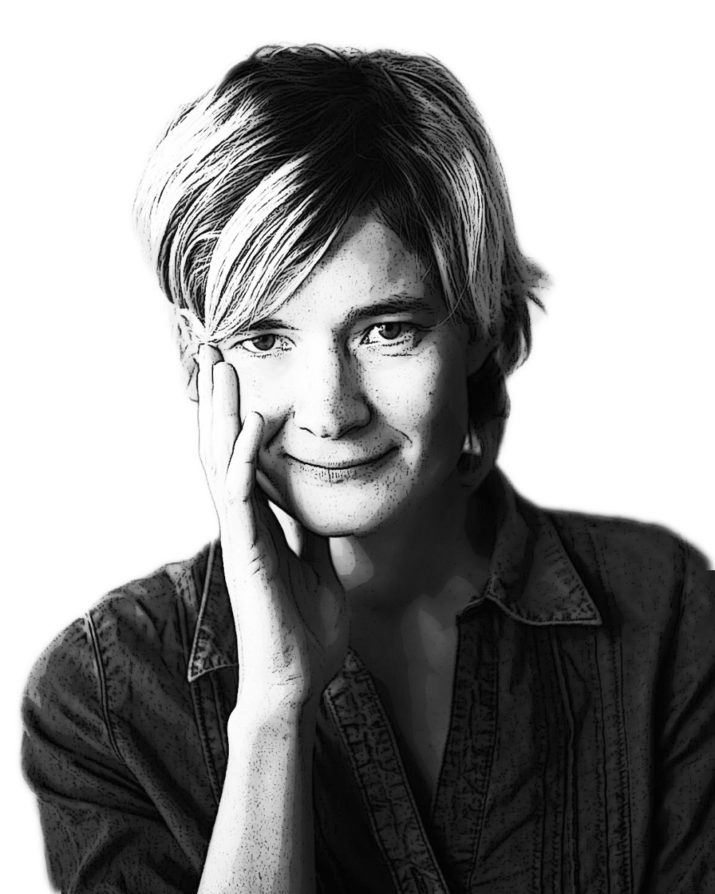

Translated from the Czech by Alex Zucker.
Don’t stink and watch your weight. Those are the most important resolutions I know of. Every morning I plop myself down in front of the mirror and stare into my face, just in case it might finally tell me something I don’t know. It stares right back, as if expecting the same from me. We’ll never settle anything doing it like that, but still, every morning I try just the same. Maybe one day it will give in. Sometimes it looks like a wisp of myself. Smirking at me with the innocent grin of a bird. Then again, other times it looks like it was slapped together from rags, like a hastily stitched soccer ball, and it’s asking for a kick, too, and all this in the time it takes us to reach a lasting agreement. Meanwhile the stool has imprinted a square into my rear and I can feel parts of my own edges, the ones that don’t hold together too well, overflowing the stool’s edges, even though I’m not overweight. It’s always lovely to have your day get off to a cheerful start.
If I had a courtyard, I would sweep it from corner to corner using a birch broom I bound together myself, and every time I did my chores, I would feel like one of those women at the country fairs who dress in traditional folk costume. Not like in the room where I wake, occasionally with a man at my side, surrounded by molded plastic. Including my little yellow molded-plastic bird, though its cage is metal, just like a real bird’s. I take great joy in the ingenuity of human invention. Everybody’s little yellow plastic bird is the same, pumped out of a machine in the far reaches of China, and so even if it was produced by child labor it still bears a whiff of the distant lands from whence it came, no matter that it flew on the wings of a Boeing.
At least it will never abandon me for warmer climes in Africa. I already get sad every fall as it is, when the birds begin to disappear. They roost even though no one forces them to, which takes some real self-discipline, so I wave at them from the street, and at least in that small way I share in their concerns. Apart from that, it doesn’t mean much in my life, I’m not the depressive type. Never have been. Some might say disorderly house, but I call it a human nest, filled with warmth and cozy corners hiding all kinds of surprises. Including the used tissues that fall behind the bed when I squirm too much at night. I slip them under my pillow after I blow my nose, and I’m not sure if they have retractable legs, or maybe more like cat’s claws in tiny little sheaths, but somehow or other they get down there, and within a few weeks they’re nice and hard. Then later, when I try to smooth them out, they crackle like the radio, or the way the radio would crackle if it weren’t e-.
The e-world plagues me, it makes me feel I’m not fast enough, even if I am still young and hairless and need warmth and caressing to blossom like the flower that every woman is, and nowadays men are flowers too and also need to be cared for. So much work goes into caring, and the labor force for it is lacking, and that’s why it’s so important for our labor market to be open to outsiders, who aren’t yet exhausted by the ups and downs of daily life, though it’s true they don’t take such good care of their looks, which puts them at a bit of a disadvantage on our streets. But flaws are part of the e-world too, since otherwise there would be nothing to improve upon, and large-scale industry would wilt like a lily.
The cheap manpower is what I like best, when they stand in the street, sunning themselves, leaning on their shovels, sweat beading on their dark, firm arms. I’m sure they could use a back massage, but they won’t come out and say so. Instead they just stand there puffing away, hiding inside a cloud of tobacco smoke, though they could easily hold their own in any local bodybuilding contest. And of course, if you’re a bodybuilder, massages come with the territory. Muscles need to be kneaded in order to remain supple yet still be pumped enough for the audience in the back rows. But I just walk right past those men with the shovels, sunken in manholes up to their waists, just as I do past the fat woman with the short hair on the corner, my brain just quietly kneading the little marble of my thoughts.
Petra Hůlová’s novels, plays, and screenplays have won numerous awards, and she is a regular commentator on current events for the Czech press. She studied language, culture, and anthropology at universities in Prague, Ulan Bator, and New York, and was a Fulbright scholar in the USA. Her eight novels and three plays have been translated into more than ten languages. Three Plastic Rooms is her second novel to be translated into English, after All This Belongs to Me (2009, also translated by Alex Zucker).
Alex Zucker is an award-winning translator of Czech. He also works in editing and communications. From 2014 to 2016, he served as co-chair of the Translation Committee at PEN America.
This excerpt from Three Plastic Rooms is published by permission of Jantar Publishing. Translation copyright © 2017 by Alex Zucker.
Published on December 6, 2017.




